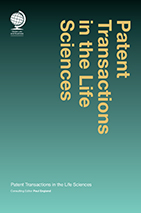Life sciences patent licensing - termination
When negotiating a patent licence, there are a number of general issues that must be considered and agreed. Here we consider termination:
A licensor will wish to retain some control over the manner in which the licensed technology is developed in order to guarantee and maximise its return, as much as possible, in the form of royalties. In particular, the licensor will want to ensure that it has the right to terminate the licence if the licensee fails to perform certain significant obligations under the licence, such as paying a royalty and marketing a product. The licensor may want to impose certain minima that the licensee has to achieve.
 At the same time, a licensee will want some flexibility against losing the licence for relatively minor defaults, whilst also having a way out of the arrangement if it proves commercially or practically onerous to perform. It is also common to see a right of the licensor to terminate a licence if the validity of the patent is challenged by the licensee. However, such terms are soon to be made unenforceable.
At the same time, a licensee will want some flexibility against losing the licence for relatively minor defaults, whilst also having a way out of the arrangement if it proves commercially or practically onerous to perform. It is also common to see a right of the licensor to terminate a licence if the validity of the patent is challenged by the licensee. However, such terms are soon to be made unenforceable.
Some terms in the licence, such as protecting the confidentiality in know-how, and in some cases (especially where the licensed technology is a research tool) the royalty obligations, will need to be expressed as surviving termination of the licence.
This toolkit article is an extract from Patent Transactions in the Life Sciences (Globe Law and Business Publishing, September 2014).
If you have any questions on this article or would like to propose a subject to be addressed by Synapse please contact us.



